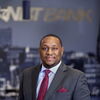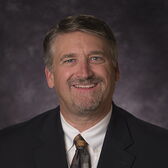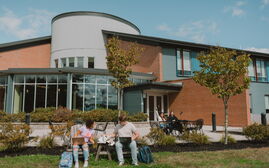Processing Your Payment
Please do not leave this page until complete. This can take a few moments.
- News
-
Editions
-
- Lists
-
Viewpoints
-
Our Events
-
Event Info
- Women's Leadership Forum 2025
- On the Road with Mainebiz in Bethel
- Health Care Forum 2025
- On The Road with Mainebiz in Greenville
- On The Road with Mainebiz in Waterville
- Small Business Forum 2025
- Outstanding Women in Business Reception 2025
- On The Road with Mainebiz in Bath
- 60 Ideas in 60 Minutes Portland 2025
- 40 Under 40 Awards Reception 2025
- On The Road with Mainebiz in Lewiston / Auburn
- 60 Ideas in 60 Minutes Bangor 2025
Award Honorees
- 2025 Business Leaders of the Year
- 2024 Women to Watch Honorees
- 2024 Business Leaders of the Year
- 2023 NextUp: 40 Under 40 Honorees
- 2023 Women to Watch Honorees
- 2023 Business Leaders of the Year
- 2022 NextUp: 40 Under 40 Honorees
- 2022 Women to Watch Honorees
- 2022 Business Leaders of the Year
-
-
Calendar
-
Biz Marketplace
- News
-
Editions
View Digital Editions
Biweekly Issues
- April 21, 2025 Edition
- April 7, 2025
- March 24, 2025
- March 10, 2025
- Feb. 24, 2025
- Feb. 10, 2025
- + More
Special Editions
- Lists
- Viewpoints
-
Our Events
Event Info
- View all Events
- Women's Leadership Forum 2025
- On the Road with Mainebiz in Bethel
- Health Care Forum 2025
- On The Road with Mainebiz in Greenville
- On The Road with Mainebiz in Waterville
- + More
Award Honorees
- 2025 Business Leaders of the Year
- 2024 Women to Watch Honorees
- 2024 Business Leaders of the Year
- 2023 NextUp: 40 Under 40 Honorees
- 2023 Women to Watch Honorees
- 2023 Business Leaders of the Year
- + More
- 2022 NextUp: 40 Under 40 Honorees
- 2022 Women to Watch Honorees
- 2022 Business Leaders of the Year
- Nomination Forms
- Calendar
- Biz Marketplace
On the Record: Thomas College president on guard against potentially ‘devastating’ federal funding cuts
 Photo / Jim Neuger
Thomas College President Jeannine Diddle Uzzi aims to create a welcoming environment at the Waterville school.
Photo / Jim Neuger
Thomas College President Jeannine Diddle Uzzi aims to create a welcoming environment at the Waterville school.
Jeannine Diddle Uzzi was recently inaugurated as the sixth president of Thomas College in Waterville. Mainebiz caught up with her to find out more about her background, this year’s to-do list and her take on challenges facing higher education today.
Mainebiz: What lessons or insights from your classical studies background do you apply today?
JDU: People may be surprised to learn how practical a classics major is for a college president. In classics, we study rhetoric, communication, translation, public speaking, ethics, politics and the history of disciplines from medicine to music. As a college president, I am a strategist, a leader, a partnership developer, an entrepreneur, a politician, a communicator. The list goes on — sometimes I even sing. Reading Greek tragedy is an education in navigating competing ethical claims. And studying the Hebrew Bible taught me to cultivate the patience of Job, which is especially helpful in higher education these days.
MB: What do you see as higher education’s greatest challenge and why?
JDU: I see higher education’s greatest challenge largely as a challenge of perception. While Americans widely acknowledge the objective benefits of a four-year degree when it comes to lifetime earning power and health outcomes, many also say they do not value higher education. And contrary to what we often see cited as the reason, it’s not only about the cost. In Maine, for example, students can attend community college tuition-free, but college attendance in the state is still down 20%. I think some people still see higher education as an out-of-touch ivory tower, but today, a college degree can be earned at any age, online, at one’s own pace, while working. And today’s colleges and universities — even those with modest price tags — offer degree and certification programs leading to lucrative fields as well as career counseling, financial literacy support, mental health counseling and services for students with disabilities. It’s time for us to stop worrying about the 1% of schools who reject 95% of their applicants and start celebrating the 95% of schools who accept the majority of students who apply.
MB: What impact do you see coming from federal policies on Thomas College’s finances and independence?
JDU: This is a case where we benefit from being small. Our endowment is not large enough to be taxed, and we don’t rely on significant federal research funding in the way many large universities do. Our students do rely on Pell funding, federal student loans and work-study, so any disruption to those programs could be devastating for our students and therefore for the college. In every decision we make, we rely on our mission and our values, which do not change with the tides. We take great pride in creating a welcoming environment for every student, and we will continue doing that because our mission requires it. Only when students feel valued and included can they learn, thrive and develop into their best selves, into the people they aspire to be. Our mission promises students that we will educate them for personal and professional success and prepare them to lead and serve in their communities: this mission is our rock.
MB: Finally, what ‘homework’ are you giving yourself this year?
JDU: When I was hired, the college needed to update its strategic plan, and I promised the board of trustees a new plan by June of this year. We will deliver on that promise because our community — internal and external — needs to know exactly where Thomas College is going. We are also in the process of hiring a new provost, so I will spend the summer onboarding a new academic leader for the college, who will take our academic programs — especially our STEM [science, technology, engineering and mathematics] programs and new lab sciences — to the next level. We also have two new science professors joining us this summer and a new major in health sciences to roll out.














0 Comments